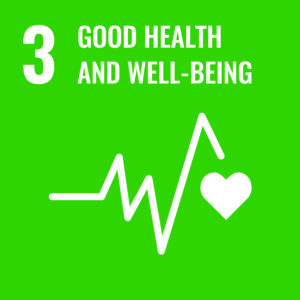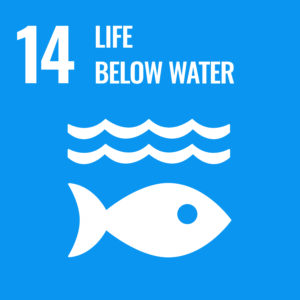The United Nations adopted the Sustainable Development Goals (SDGs) in 2015 as a call for action for all countries to end poverty, promote prosperity, protect the planet and ensure that by 2030 all people can live safely and have access to clean water and education. Aviation is a crucial driver of economic and social growth and plays an essential role in supporting the UN SDGs through generating connectivity between nations.
The aviation sector develops millions of jobs, enables tourism and supports sustainable progress worldwide. To ensure that air traffic development is managed safely, efficiently, and securely, ICAO has established five Strategic Objectives (SOs): Safety, Air Navigation Capacity and Efficiency, Security and Facilitation, Economic Development of Air Transport and Environmental Protection. With an association to 15 of the 17 SDGs, ICAO’s SOs highlight civil aviation’s immense role in improving people’s lives worldwide. We are highlighting these contributions below.
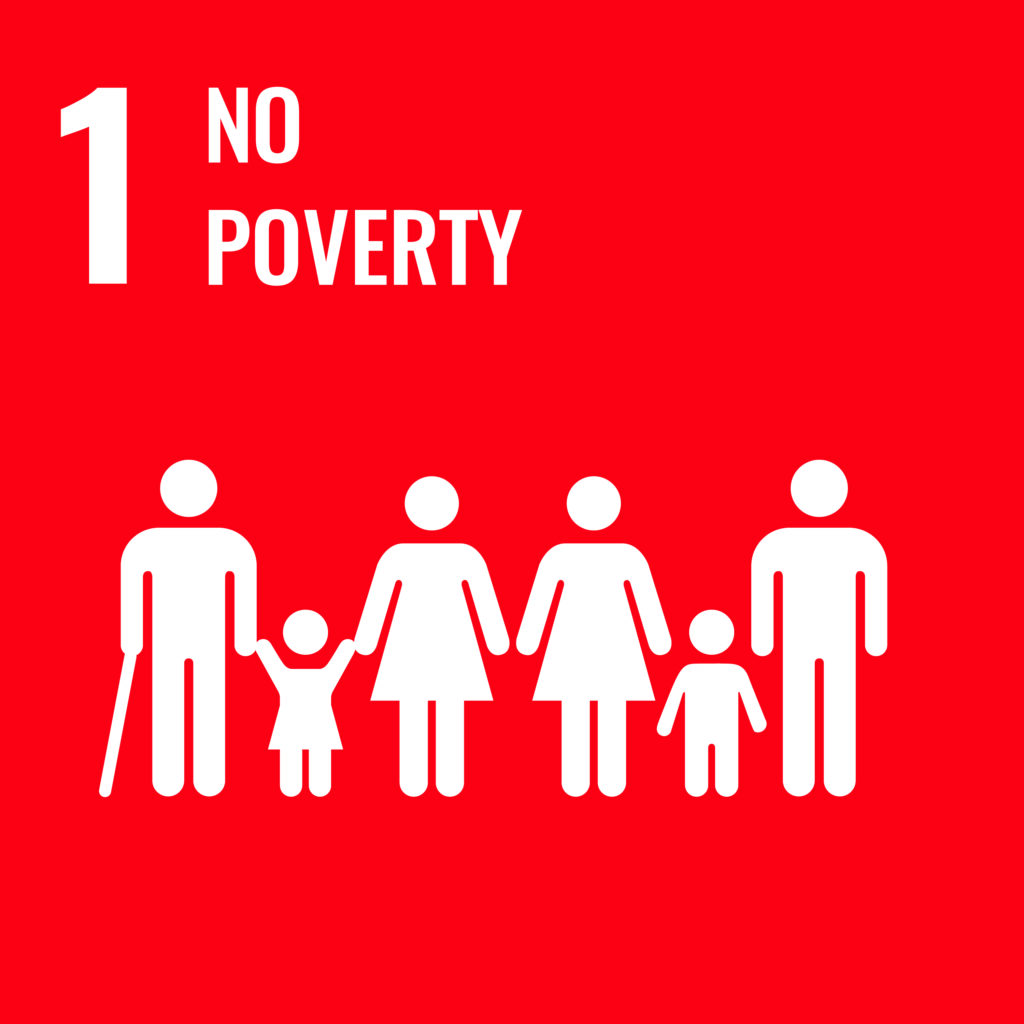 The first United Nations Sustainable Development Goal is to end poverty in all its forms, everywhere by 2030. Poverty can be the result of unemployment or the vulnerability of specific populations to disasters, social exclusions, diseases, and more. Between 1990 and 2015, the number of people living in extreme poverty dropped by more than half. The numbers continuously decreased over the years, from 36 percent in 1990 to 10 percent in 2015. However, despite these improvements, eradicating poverty remains a challenge. As of 2015, over 700 million people worldwide still lived on less than US $1.90 a day and struggled to fulfill many basic needs such as education, health, lack of food, clean drinking water and access to sanitation. The COVID-19 crisis has not helped, making it even harder to achieve this goal. The pandemic became the number one cause of global poverty, pushing over 71 million more people into extreme poverty in 2020.
The first United Nations Sustainable Development Goal is to end poverty in all its forms, everywhere by 2030. Poverty can be the result of unemployment or the vulnerability of specific populations to disasters, social exclusions, diseases, and more. Between 1990 and 2015, the number of people living in extreme poverty dropped by more than half. The numbers continuously decreased over the years, from 36 percent in 1990 to 10 percent in 2015. However, despite these improvements, eradicating poverty remains a challenge. As of 2015, over 700 million people worldwide still lived on less than US $1.90 a day and struggled to fulfill many basic needs such as education, health, lack of food, clean drinking water and access to sanitation. The COVID-19 crisis has not helped, making it even harder to achieve this goal. The pandemic became the number one cause of global poverty, pushing over 71 million more people into extreme poverty in 2020.
Connectivity and air liberalization are drivers for better access to transportation of passengers and goods such as humanitarian aid. ICAO promotes their importance through partnerships with other UN agencies, regional and global meetings, and subsequent declarations. ICAO contributes to the first SDG by developing a strategic planning document for a possible Global Air Transport Plan (GATP). The intent is to provide a long-term vision and goals for harmonizing the air transport framework in all Member States and to define a strategy for fostering the development of a robust and economically viable civil aviation system worldwide through targeted economic policies and support activities. The results will help the growth of civil aviation activities and the efficiency of air transport, thus to the global economy and the expansion of trade and tourism. These activities also help to ensure that all men and women have access to economic resources, transportation services and new technologies.
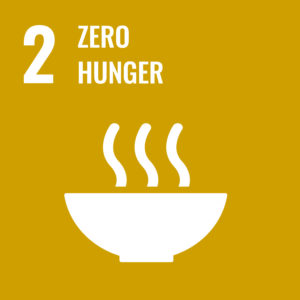 The second SDG aims to end all forms of hunger and malnutrition by 2030 and provide access to all individuals–especially children and the poor–to safe, nutritious and sufficient food all year. Achieving this target demands international assistance to ensure investment in infrastructure and technology to enhance agricultural productivity, promoting sustainable agriculture, supporting small-scale farmers and equal access to land, technology and markets.
The second SDG aims to end all forms of hunger and malnutrition by 2030 and provide access to all individuals–especially children and the poor–to safe, nutritious and sufficient food all year. Achieving this target demands international assistance to ensure investment in infrastructure and technology to enhance agricultural productivity, promoting sustainable agriculture, supporting small-scale farmers and equal access to land, technology and markets.
Aviation brings vital humanitarian assistance to areas affected by conflict and disasters through the United Nations Humanitarian Air Service (UNHAS), the World Food Programme (WFP), and by other charities and commercial airlines that provide their cargo and cabin space. Unmanned aircraft systems (UAS) and artificial intelligence also help improve food quality during crop production or collect soil samples to support precision agriculture. While the UAS can change how ICAO does business to contribute to the second SDG, proper regulations are required to fully unleash their potential to operate safely, securely, efficiently, and environmentally responsible.
Also, ICAO contributes to this goal by ensuring efficient and comprehensive air navigation services through globally planned initiatives outlined in the Global Air Navigation Plan (GANP). It gives a roadmap to improve air navigation capacity and efficiency to accommodate rapid growth and mitigate the risks of operating more aircraft within a defined amount of airspace. The modernization of the global air traffic management system improves flight operations’ reliability, contributing to the second SGD by enhancing accessibility to remote areas and facilitating urgent access to sufficient food for everyone year-round. Moreover, ICAO‘s sustainability criteria for producing sustainable aviation fuels will ensure that the production of the fuels does not compete with the food supply. Sustainable aviation fuel production contributes to ending hunger and malnutrition by promoting resilient agricultural practices that improve productivity and output.
The third objective is to ensure healthy lives and promote well-being for all. Before the COVID-19 pandemic started, we saw progress in many health areas, such as reducing maternal and child mortality, increasing immunization coverage, and reducing infectious diseases. Despite these improvements, the pandemic has overwhelmed the health systems and threatens the health outcomes that have already been achieved.
Aviation supports people’s well-being and health by carrying medicine and vaccines across long distances under-regulated storage conditions. Air transport also gives necessary medical care through air ambulances to remote communities. ICAO works to implement the Collaborative Arrangement for the Prevention and Management of Public Health Events in Civil Aviation (CAPSCA), which coordinates the international aviation response to public health risks, such as a pandemic. Through this coordination, ICAO promotes eliminating infectious viruses, which helps achieve this goal by reinforcing the capacity of all ICAO Member States, especially developing countries, for early warning, risk reduction, and management of national and global health risks. ICAO also set Facilitation, Standards and Recommended Practices (SARPs) in Annex 9 under Article 14 of the Convention on International Civil Aviation. This measure aims to provide a global regulatory framework addressing public health aspects of civil aviation, disinfection of aircraft, implementation of international health regulations, and establishing national aviation plans in preparation for outbreaks of infectious diseases. Also, in collaboration with the World Health Organization (WHO), ICAO conducts studies on the connections between air transport, economic impact and health and shares the analyses on rising issues of global importance with other international organizations. They also collaborate to increase knowledge of the human health effects of aviation noise and emissions.
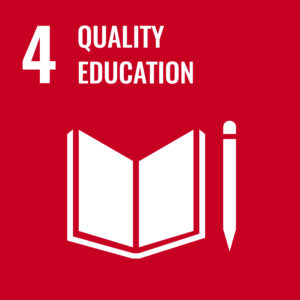 Education is one of the most influential vehicles for sustainable development. It is vital to escape poverty as it enables socioeconomic upward mobility. The fourth SDG ensures inclusive and quality education and promotes lifelong learning for all. In recent decades, there has been significant progress in achieving universal primary education, increasing school enrolment rates and access to education for all, particularly with girls. Education helps reduce inequalities and reach gender equality. The aim is to achieve global access to quality higher education, eradicate gender and wealth inequalities, and provide equal access to affordable vocational education. This goal ensures that all girls and boys complete free elementary and high school schooling by 2030.
Education is one of the most influential vehicles for sustainable development. It is vital to escape poverty as it enables socioeconomic upward mobility. The fourth SDG ensures inclusive and quality education and promotes lifelong learning for all. In recent decades, there has been significant progress in achieving universal primary education, increasing school enrolment rates and access to education for all, particularly with girls. Education helps reduce inequalities and reach gender equality. The aim is to achieve global access to quality higher education, eradicate gender and wealth inequalities, and provide equal access to affordable vocational education. This goal ensures that all girls and boys complete free elementary and high school schooling by 2030.
Through training and events, ICAO assists States in implementing the Organization’s Standards and Recommended Practices (SARPs) policies and programmes. ICAO’s training activities, such as Global Plan and SARPs, include training development and delivery of courses where ICAO has intellectual property and are done through the TRAINING PLUS Programme. ICAO also organizes global and regional aviation training events to discuss opportunities to enhance human resources development, identify new practical training tools, and exchange best practices. The Organization also supports the fourth SDG through its Next Generation of Aviation Professionals Programme (NGAP). The Programme aims to ensure enough competent and qualified aviation professionals are available to maintain, operate and manage the future international air transport system. ICAO convenes training seminars for the Member States. These focus on the exchange of the latest knowledge on environmental subjects. These activities increase the number of youth and adults who have relevant skills, including technical and vocational skills, for employment, decent jobs and entrepreneurship, in the world of aviation and thus contribute directly to achieving SDG 4.
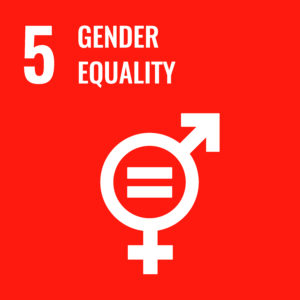 The fifth SDG is to achieve gender equality and empower all women and girls. Ending all discrimination against women and girls is essential for a sustainable future since empowering women helps economic growth and development. Significant achievements in gender equality were made in recent decades, such as increasing the number of girls attending school, fewer girls forced into early marriages and more women serving leadership positions. But gender inequality in communities persists and stagnates social progress. With women disproportionately working in insecure labour markets, they are more vulnerable to the economic impacts of the pandemic. Almost 60 percent of women work in the informal economy, putting them at significant risk of falling into poverty.
The fifth SDG is to achieve gender equality and empower all women and girls. Ending all discrimination against women and girls is essential for a sustainable future since empowering women helps economic growth and development. Significant achievements in gender equality were made in recent decades, such as increasing the number of girls attending school, fewer girls forced into early marriages and more women serving leadership positions. But gender inequality in communities persists and stagnates social progress. With women disproportionately working in insecure labour markets, they are more vulnerable to the economic impacts of the pandemic. Almost 60 percent of women work in the informal economy, putting them at significant risk of falling into poverty.
ICAO’s Gender Equality Programme contributes to this SDG by promoting women’s participation and enhancing their presence at all professional posts and higher employment levels in the global aviation industry. The programme urges States, regional and international aviation organizations, and the global aviation sector to demonstrate robust and determined leadership and commitment to promote women’s rights and to take necessary measures to strengthen gender equality. ICAO also works with Member States, partners in the aviation industry, professional associations, academia, and the UN system on programmes and projects to invite young girls to aerospace. The aim is also to provide career development opportunities to women working in aviation by undertaking professional assignments at the Organization. Aviation is working to achieve gender balance across the industry. In Europe, the aviation sector is the most gender-balanced of all transport modes, with 41 percent female employees.
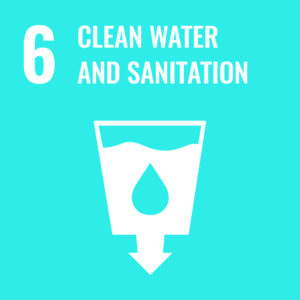
Goal 6 is to ensure access to safe water sources and sanitation for all. While significant progress has been made in increasing access to clean drinking water and sanitation, more and more countries are experiencing water stress. Increasing drought and desertification are already worsening these trends. Access to sanitation, hygiene and water is a human right. Still, water demand has outpaced population growth, and one in three people does not have safe drinking water. Also, two out of five people do not have a primary hand-washing facility with soap and water, and over 673 million people still practice open defecation.
While ICAO does not directly contribute to SDG 6, the aviation industry fights to reduce its environmental footprint, including through the sustainable management of water. For example, traditional cleaning methods for a wide-body aircraft could use up to 13,000 liters of water. But new ‘dry wash’ techniques for aircraft minimize water use by 95 percent compared to traditional cleaning methods.
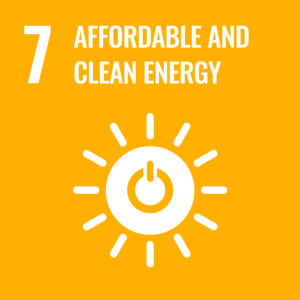 The seventh SDG ensures access to affordable, reliable, sustainable, and modern energy for all. The world is progressing toward achieving this goal with encouraging signs. Between 2000 and 2018, energy was more available and sustainable, with the number of people with electricity jumping from 78 to 90 percent. Other achievements include speeding up access to electricity in poorer countries, improving energy efficiency and gains in renewable energy in the electricity sector. Although we are progressing, 789 million people worldwide still lack access to electricity—548 million people in sub-Saharan Africa alone. Energy services contribute to fighting pandemics and preventing diseases. A lack of energy can lead to severe consequences from powering healthcare facilities and supplying clean water for essential hygiene to enable communications and IT services that connect people while maintaining social distance.
The seventh SDG ensures access to affordable, reliable, sustainable, and modern energy for all. The world is progressing toward achieving this goal with encouraging signs. Between 2000 and 2018, energy was more available and sustainable, with the number of people with electricity jumping from 78 to 90 percent. Other achievements include speeding up access to electricity in poorer countries, improving energy efficiency and gains in renewable energy in the electricity sector. Although we are progressing, 789 million people worldwide still lack access to electricity—548 million people in sub-Saharan Africa alone. Energy services contribute to fighting pandemics and preventing diseases. A lack of energy can lead to severe consequences from powering healthcare facilities and supplying clean water for essential hygiene to enable communications and IT services that connect people while maintaining social distance.
ICAO recognizes the need for a greater exchange of information on sustainable aviation fuels and has launched its Global Framework on Aviation Alternatives Fuels (GFAAF). This online platform provides an updated database of activities and developments in sustainable aviation fuels, including an online map illustrating. In addition, electric aircraft are expected to undertake a critical step in a great technological revolution in aviation that soon might match the present migration of the automotive industry from combustion engines to electric motors. Also, through the convening of international Conferences and Seminars, ICAO encourages exchanging information and best practices amongst stakeholders on clean energy to reduce the impact of airport operations on the environment and promote cooperation action globally. These actions contribute to the seventh SDG by enhancing international cooperation to facilitate clean energy research and technology access.
ICAO also develops and updates aviation-related forecasts to support air navigation planning that feeds into the Committee on Aviation Environmental Protection (CAEP) work. The harmonization of traffic databases in support of aviation development and air navigation planning also provides fuel consumption data to enable reports on CO2 emissions to the United Nations Framework Convention on Climate Change (UNFCCC). The aviation industry is developing sustainable aviation fuels that reduce CO2 emissions by 80 percent compared to fossil fuels. Nearly 200,000 commercial flights using sustainable fuels have already taken place. Also, more efficient take-offs and landings were realized using Performance-based Navigation (PBN). The modernization of the global air traffic management system, including implementing PBN, generates significant benefits which contribute to SDG 7 by improving energy efficiency.
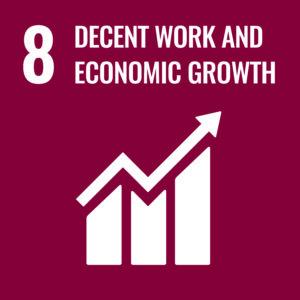 SDG 8 promotes sustained and inclusive economic growth, drives progress, improves living standards, and creates decent jobs for all. Encouraging entrepreneurship and job creation are essential to obtaining this goal, as are effective measures to eradicate forced labor, slavery and human trafficking. Over the past 25 years, significant improvements have been made. Despite the lasting impacts of the 2008 economic crisis and global recession, the number of workers living in extreme poverty has significantly declined. The middle class makes up over 34 percent of total employment in developing countries–a number that has almost tripled between 1991 and 2015. But the COVID-19 pandemic is not helping. Due to safety regulations to slow down the virus, such as closing small businesses, lockdowns, and travel bans, billions of lives have been disrupted. As job losses rise, the global recession after the pandemic is expected to be worse than in 2009, with roughly half of the international workforce at risk of losing their livelihoods.
SDG 8 promotes sustained and inclusive economic growth, drives progress, improves living standards, and creates decent jobs for all. Encouraging entrepreneurship and job creation are essential to obtaining this goal, as are effective measures to eradicate forced labor, slavery and human trafficking. Over the past 25 years, significant improvements have been made. Despite the lasting impacts of the 2008 economic crisis and global recession, the number of workers living in extreme poverty has significantly declined. The middle class makes up over 34 percent of total employment in developing countries–a number that has almost tripled between 1991 and 2015. But the COVID-19 pandemic is not helping. Due to safety regulations to slow down the virus, such as closing small businesses, lockdowns, and travel bans, billions of lives have been disrupted. As job losses rise, the global recession after the pandemic is expected to be worse than in 2009, with roughly half of the international workforce at risk of losing their livelihoods.
Enhancing aviation safety is a prerequisite for sustainable development, which will enable higher levels of economic productivity. To do so, ICAO assists States in developing ICAO Plans of Action and technical assistance projects. ICAO also manages the Next Generation of Aviation Professionals Programme (NGAP). This ensures competent there are enough aviation professionals available to operate and maintain the future international air transport system. Through these initiatives, ICAO contributes to SGD 8 by promoting higher economic productivity and employment for all. As well as providing employment, aviation contributes USD 2.7 trillion to global economic activity, 3.6 percent of the worldwide total. ICAO also supports inclusive green growth and fosters green economy initiatives to enable new green technologies and clean energy for the aviation sector, investments in aviation biofuels produced through sustainable agricultural practices and processing processes, creating green jobs. The growth of the green economy generates significant social benefits, such as safe working environments for all workers and sustainable tourism, which also creates more jobs. Through innovation, diversification, and technological upgrade, ICAO promotes higher economic productivity levels, contributing to obtaining the goal.
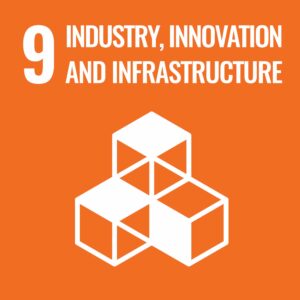 Investing in infrastructure and innovation is essential since they are drivers of economic growth and development. The ninth SDG is to build resilient infrastructure, promote inclusive and sustainable industrialization, and foster innovation. With infrastructure and innovation, inclusive and sustainable industrialization can unleash dynamic and competitive economic forces that generate employment and income. Their role is crucial as they help introduce and promote new technologies, enable efficient resources, and facilitate international trade.
Investing in infrastructure and innovation is essential since they are drivers of economic growth and development. The ninth SDG is to build resilient infrastructure, promote inclusive and sustainable industrialization, and foster innovation. With infrastructure and innovation, inclusive and sustainable industrialization can unleash dynamic and competitive economic forces that generate employment and income. Their role is crucial as they help introduce and promote new technologies, enable efficient resources, and facilitate international trade.
Aviation is one of the most innovative industries in the world. The manufacturing sector regularly develops new technologies and creates significant urban infrastructure through airports and air traffic management. In 2016, almost USD 64 billion was invested in airport infrastructure, with the most investment in Asia and the Americas. ICAO is leading the development and implementation of policies and provisions to mitigate cyber security risks to international civil aviation and foster the collective evolution of the Unmanned Aircraft Systems (UAS) industry, also known as “drones.” They will support many activities such as developing goods delivery business models, particularly online sale of products and food, an inspection of infrastructure and land, monitoring of people, agriculture and the environment, and medical logistics and humanitarian activities. ICAO is responding to innovations from the industry and focusing attention on the need to address the safe, secure and efficient insertion of new types of aircraft such as drones and flying taxis, accompanied by the introduction of new types of operators and operations. As these projects’ concept evolves, ICAO continues to facilitate dialogue between regulators and industry stakeholders to assist decision-makers in planning for the safe and efficient integration of these new operations within urban ecosystems. ICAO also promotes the Machine Readable Travel Document (MRTD) Programme that standardizes machine-readable passports (MRPs), ICAO Traveller Identification Programme (TRIP) Strategy, and manages the ICAO Public Key Directory (PKD). ICAO contributes to this goal by developing sustainable and resilient infrastructure that eventually supports economic development and human well-being through these actions.
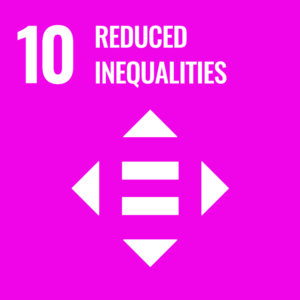 SDG 10 aims to reduce inequalities within and among countries. Inequality jeopardizes long-term social and economic growth, undermines poverty reduction, and ruins people’s sense of fulfillment and self-worth. Women and youth with a lack of access to healthcare die every day from preventable illnesses such as measles and tuberculosis or in childbirth. Older persons, migrants, and refugees also have to deal with a lack of opportunities and discrimination. Inequalities based on race, sex, ethnicity, religion, class and income persist worldwide. But we can achieve equality for everyone by requiring a transformative change among and within countries. More significant efforts are needed to eradicate extreme poverty, hunger and invest in many sectors such as social protection, health, and education.
SDG 10 aims to reduce inequalities within and among countries. Inequality jeopardizes long-term social and economic growth, undermines poverty reduction, and ruins people’s sense of fulfillment and self-worth. Women and youth with a lack of access to healthcare die every day from preventable illnesses such as measles and tuberculosis or in childbirth. Older persons, migrants, and refugees also have to deal with a lack of opportunities and discrimination. Inequalities based on race, sex, ethnicity, religion, class and income persist worldwide. But we can achieve equality for everyone by requiring a transformative change among and within countries. More significant efforts are needed to eradicate extreme poverty, hunger and invest in many sectors such as social protection, health, and education.
Air transport provides connectivity which can reduce inequality between individuals and countries by creating trade links and providing access to goods and services for those in remote communities. While not everyone can afford air transport services, the democratization of air travel has made these services available to more people today. Since 1970, the real cost of air travel has been reduced by 70 percent. Through initiatives such as ICAO’s No Country Left Behind (NCLB), the Global Aviation Security Plan (GASeP), promoting the Machine Readable Travel Document (MRTD) Programmes, and ICAO Traveller Identification Programme (TRIP), the Organization contributes to reducing inequalities by promoting appropriate legislation, policies and action for the safe development of an air transport system. Also, these actions help reduce disparities among countries by promoting unified policies in traveller identification practices and implementing well-managed procedures to facilitate the orderly, safe, and responsible migration and mobility of people.
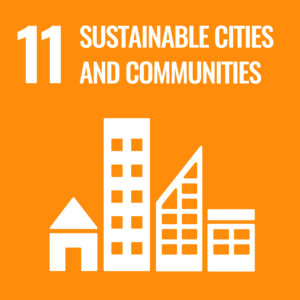 The 11th SDG is to make cities inclusive, safe, resilient and sustainable. But what does making cities more sustainable mean? It creates career and business opportunities, safe and affordable housing, and builds resilient societies and economies. Reaching this goal means creating more green spaces, investing in public transport, and enhancing management and urban planning in participatory and inclusive ways. Over the last decade, the world has become more urbanized. As a result, more than half the global population lives in cities, and it is expected that 6.5 billion people will be urban by 2050. This rapid growth results from rising populations and increasing migration, leading to a boom in mega-cities and slums becoming a more significant feature of urban life. Urban areas and cities are economic development powerhouses and contribute to about 80 percent of global gross domestic product (GDP). However, they also account for over 60 percent of resource value and almost 70 percent of worldwide carbon emissions.
The 11th SDG is to make cities inclusive, safe, resilient and sustainable. But what does making cities more sustainable mean? It creates career and business opportunities, safe and affordable housing, and builds resilient societies and economies. Reaching this goal means creating more green spaces, investing in public transport, and enhancing management and urban planning in participatory and inclusive ways. Over the last decade, the world has become more urbanized. As a result, more than half the global population lives in cities, and it is expected that 6.5 billion people will be urban by 2050. This rapid growth results from rising populations and increasing migration, leading to a boom in mega-cities and slums becoming a more significant feature of urban life. Urban areas and cities are economic development powerhouses and contribute to about 80 percent of global gross domestic product (GDP). However, they also account for over 60 percent of resource value and almost 70 percent of worldwide carbon emissions.
Aviation-related infrastructure is a significant part of urban and rural communities worldwide and contributes to the connectivity of populations through integrated transport links. ICAO promotes air connectivity as a vital driver in developing strategic and integrated transport infrastructures, enhancing people and businesses’ mobility through all transportation methods. As for environmental protection, ICAO develops and maintains guidance on eco-friendly airports, evaluates policies for aircraft recycling and establishes Clean Development Mechanism (CDM) methodologies for aviation, and implements environmental assessment guidance. Through these initiatives, ICAO supports sustainable urbanization and human settlement planning at the national level, helps establish positive environmental links between regions and reduces adverse environmental impacts of cities through improvements in air quality and waste management.
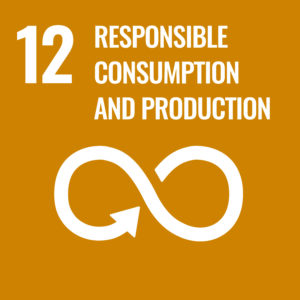 Ensuring sustainable consumption and production patterns requires urgently reducing our ecological footprint. Therefore, understanding how we produce and consume goods and resources is essential to achieving economic growth and sustainable development. Production patterns have accompanied economic and social progress to a more sustainable course over the last century. Achieving SDG 12 will require many changes, such as adequate management of our shared natural resources and how we dispose of harmful waste and pollutants. But raising awareness and encouraging businesses, industries, and consumers to recycle and reduce, decouple economic growth from environmental degradation, increasing resource efficiency, and promoting sustainable lifestyles are also important targets to obtaining our goal by 2030.
Ensuring sustainable consumption and production patterns requires urgently reducing our ecological footprint. Therefore, understanding how we produce and consume goods and resources is essential to achieving economic growth and sustainable development. Production patterns have accompanied economic and social progress to a more sustainable course over the last century. Achieving SDG 12 will require many changes, such as adequate management of our shared natural resources and how we dispose of harmful waste and pollutants. But raising awareness and encouraging businesses, industries, and consumers to recycle and reduce, decouple economic growth from environmental degradation, increasing resource efficiency, and promoting sustainable lifestyles are also important targets to obtaining our goal by 2030.
ICAO contributes to SDG 12 by developing tools to monitor the sustainable development impacts of sustainable tourism in creating local jobs. Airlines and airports worldwide have recognized the importance of reducing, reusing, and recycling waste. ICAO promotes the environmentally sound management of wastes through their life-cycle, water, preventing air and soil pollution, and minimizing their adverse impacts on health and the environment. Airlines and manufacturers work closely together to recycle aircraft at the end of their service – recycling up to 90 percent of the aircraft by weight. ICAO rationalizes data management, reduces costs, and modernizes and re-engineers business processes under the Enterprise Data Management framework, with the UN Statistical Commission’s endorsement, through strengthened partnerships on data collection analysis and dissemination with other organizations and academia. By doing so, ICAO develops tools to monitor the sustainable development impacts of sustainable tourism in creating local jobs.
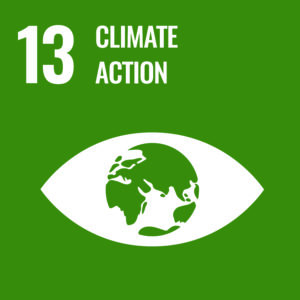 Climate change affects every country. From rising sea levels to increasingly extreme weather events, no country is immune to the dramatic effects of climate change. The 13th SDG aims to take urgent action to tackle climate change and its impacts. Over the years, the world has witnessed sea levels rising and weather events becoming more intense. Since 1880, sea levels have increased by about 20 percent and are projected to grow another 30-122 cm by 2100.
Climate change affects every country. From rising sea levels to increasingly extreme weather events, no country is immune to the dramatic effects of climate change. The 13th SDG aims to take urgent action to tackle climate change and its impacts. Over the years, the world has witnessed sea levels rising and weather events becoming more intense. Since 1880, sea levels have increased by about 20 percent and are projected to grow another 30-122 cm by 2100.
The last decade was especially hot, with 2019 being the second warmest year on record. From 2010 to 2019, massive wildfires, hurricanes, droughts, and floods happened worldwide, affecting over 39 million people in 2018 alone. The human impact of geophysical disasters is also 91 percent climate-related. The events have killed 1.3 million people and left 4.4 billion injured between 1998 and 2017. Not to mention the economic losses from climate-related disasters, which are in the hundreds of billions of dollars annually. Goal 13 also addresses developing countries’ needs to adapt to climate change and invest in low-carbon development by mobilizing USD100 billion annually by 2020. Not only does supporting vulnerable regions contribute directly to this goal, but also to the other SGDs.
Aviation has precise and wide-ranging climate action plans to reduce CO2 emissions, and the industry is making good progress towards achieving its global climate goals. ICAO provides Member States with internationally agreed policies, standards, guidance, and tools to reduce CO2 emission environmental impacts from international aviation, including implementing a “basket of measures.” This project will allow ICAO to meet the global aspirational goals of a two percent annual fuel efficiency improvement and carbon-neutral growth. Other actions have addressed carbon emissions, such as the Carbon Offsetting and Reduction Scheme for International Aviation (CORSIA). The agreement on CORSIA, which is the first-ever market-based measure addressing carbon emissions of a significant industry sector globally, reflects many years of intensive effort by ICAO and its Member States in cooperation with the aviation industry. ICAO also contributes to SDG 13 by coordinating emergencies through its crisis response policy and disaster risk reduction strategy in aviation. These initiatives help increase Member States adaptive capacity when faced with natural disasters and strengthen the resilience of aviation infrastructure to natural disasters. Through conducting studies on aviation’s economic, environmental, and social impacts and sharing the results with other international organizations, ICAO raises awareness, educates, and builds institutional capacity on climate change mitigation and consequent impact reaction.
Not only do oceans regulate the global climate system and are our earth’s life support, but they are also the world’s largest ecosystem, home to almost a million known species. Their temperature, chemistry, life, and currents drive global systems that make our planet habitable for humankind. To preserve them, the UN 14 SDG aims to conserve and sustainably use the world’s ocean, seas, and marine resources. However, coastal waste is significantly deteriorating due to pollution, and ocean acidification negatively affects ecosystems and biodiversity. This also is negatively impacting small-scale fisheries.
ICAO does not directly contribute to SDG 14. Still, the aviation industry contributes by having airports and airlines worldwide working to conserve the oceans, seas, and marine resources, including conservation programmes and raising awareness among passengers.
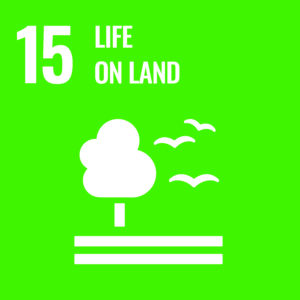 Goal 15 is to sustainably manage forests, combat desertification, halt and reverse land degradation, and halt biodiversity loss. Nature is essential to our human lives. We depend on the earth as much as the ocean for our livelihoods and sustenance to provide us with oxygen, pollinate our crops, produce our food, and regulate our weather patterns. Forests are home to more than 80 percent of all biodiversity and cover almost 30 percent of our planet’s land area. They are also necessary sources of clean air and water and crucial for combating climate change. But over the years, human activities have altered relatively 75 percent of the earth’s surface. Every year, 13 million hectares of forest are lost. The constant deterioration of drylands has led to the desertification of 3.6 billion hectares, affecting poor communities.
Goal 15 is to sustainably manage forests, combat desertification, halt and reverse land degradation, and halt biodiversity loss. Nature is essential to our human lives. We depend on the earth as much as the ocean for our livelihoods and sustenance to provide us with oxygen, pollinate our crops, produce our food, and regulate our weather patterns. Forests are home to more than 80 percent of all biodiversity and cover almost 30 percent of our planet’s land area. They are also necessary sources of clean air and water and crucial for combating climate change. But over the years, human activities have altered relatively 75 percent of the earth’s surface. Every year, 13 million hectares of forest are lost. The constant deterioration of drylands has led to the desertification of 3.6 billion hectares, affecting poor communities.
In collaboration with government and conservation organization partners, the aviation industry combats the illegal wildlife trade that takes advantage of air transport’s connectivity. ICAO and its Member States have been working with the aviation industry to foster sustainable Aviation Fuels (SAFs) development and deployment. This action will contribute to the sustainable use of terrestrial ecosystems, such as forests. For example, the production of SAF from forestry residues can be an essential component of sustainable forest management.

Regardless of their faith, ethnicity or sexual orientation, everyone must feel safe as they go about their lives and free of fear. But, conflict, insecurity, weak institutions and limited access to justice remain significant issues to sustainable development. Therefore, the 16th SDG aims to encourage peaceful and inclusive communities for sustainable development, give access to justice for all and build efficient, accountable and inclusive institutions at all levels. Although many regions enjoy peace, prosperity and security, the world remains divided. To this day, some areas fall into continuous cycles of conflict and violence, which negatively impact a country’s development, affecting economic prosperity and often resulting in grievances lasting for generations.
Air transport contributes to global standards and laws that ensure a safe, secure and sustainable sector. Through actions such as developing the Global Aviation Security Plan (GASep), ICAO Standards and Recommended Practices (SARPs), continuously refining the global aviation security framework, and assisting the ICAO Member States through enhancing the implementation of the Traveller Identification Programme (TRIP) Strategy, ICAO contributes to this SDG by eradicating the trafficking of people and promoting the rule of law at the national and international level. Small unmanned aircraft are essential to monitor at-risk societies, collect data for humanitarian response and support delivery of life-saving air. ICAO also works to reduce violence and related death rates worldwide by developing global standards and policies about global flight tracking and conflict zone risks and the use of small unmanned aircraft.
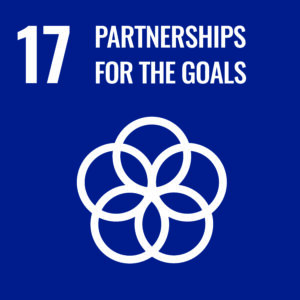 The last SDG is to strengthen the global partnership for sustainable development. Essential efforts must be made to obtain this goal, such as supporting national plans to achieve all the targets, encouraging foreign trade and helping developing countries expand their reports. These efforts will facilitate reaching a universal rules-based and fair trading system that benefits all. Today’s technology empowers us to share ideas and foster innovation. We are more interconnected than ever, and the current pandemic proved it to the world. Over the past year, we have witnessed that strengthening multilateralism and international partnerships is more important than ever to solve the world’s problems.
The last SDG is to strengthen the global partnership for sustainable development. Essential efforts must be made to obtain this goal, such as supporting national plans to achieve all the targets, encouraging foreign trade and helping developing countries expand their reports. These efforts will facilitate reaching a universal rules-based and fair trading system that benefits all. Today’s technology empowers us to share ideas and foster innovation. We are more interconnected than ever, and the current pandemic proved it to the world. Over the past year, we have witnessed that strengthening multilateralism and international partnerships is more important than ever to solve the world’s problems.
Partnerships between all aviation industry sectors such as airports, airlines, air traffic management, business aviation, manufacturers and suppliers enable the global air transport industry. Following the strategic direction of its Global Aviation Safety Plan (GASP), ICAO assists its Member States to enhance aviation safety that enables the sustainable development of the air transport system resulting in economic growth. Implementing the GASP and the international support for the prioritization of aviation in development frameworks contributes to SDG 17 by enhancing policy coordination and coherence while ultimately respecting each country’s policy space. The Organization also assists States in developing strategies for cooperation with Civil Aviation Authorities and non-State entities involved in civil aviation. It continuously explores additional funding sources for technical cooperation and technical assistance projects. ICAO participates in many partnerships to assist States in addressing safety challenges, air navigation capacity and efficiency needs, aviation security, enhancing aviation environmental matters through international cooperation and the support of UN ecological initiatives, and more.

